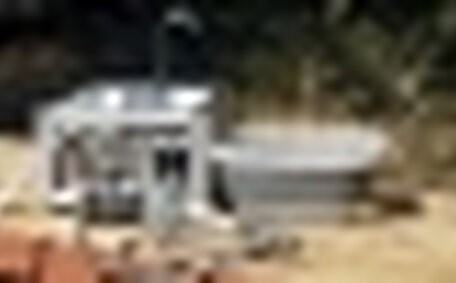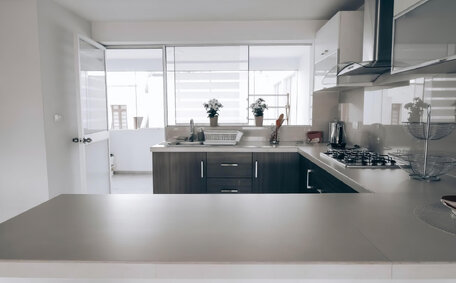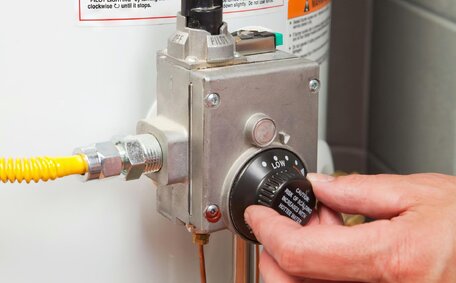Recognizing the signs of a severe blocked drain
Signs of a minor blocked drain, like water draining more slowly or gurgling noises, suggest initial plumbing issues. However, severe blockages that cause water to back up or spill over necessitate immediate professional attention.
Major signs that indicate you should call emergency plumbing requiring urgent attention include:
- Water overflowing from multiple drains
- Strong sewage odours coming from drains
- Multiple toilets unable to flush
- Standing water around exterior foundation and yard
It’s crucial to call in a professional emergency plumber without delay.
Ignoring such a scenario invites sewage backup, unsanitary conditions, water damage risks, and possibly high repair costs. Recognising these critical signs hints at an obstruction that could compromise the quality work of your sewer system, potentially reaching beyond your dwelling’s perimeter.
Slow drainage and overflowing water
Slow drainage often indicates the need for an expert plumber to address a potential blockage. At first, you may notice water draining slower than usual even though you haven’t changed your usage habits. Over time, accumulating debris can slow down drainage, hinting at blockage formation.
If left unchecked,
An overflow signals an urgent need to call a local plumber, as it means the drain is fully blocked and risks sewage backups and interior water damage.
A skilled emergency plumber, using specialised equipment like hydro-jetters, can efficiently clear blocked drains. Known for comprehensive techniques, including drain cameras, they are well-positioned to handle difficult blockages professionally, ensuring customer satisfaction.
Sewage smells and gurgling sounds
Sewage odours and gurgling noises emanating from drains are signs of a blocked drain or a malfunctioning vent stack. These tend to manifest when drain unblocking is needed as air and wastewater get ensnared by a clog.
Sewage smells usually smell like rotten eggs. This is from built up gas released by waste water draining slowly or sitting stagnant in your pipes. If proper airflow isn’t maintained to vent gases outside, they begin to accumulate and emit strong odours.
Gurgling sounds happen when air bubbles are forced through standing water or debris. This creates noticeable gurgling noises as air is forced through the water or blockage.
The emergence of a distinctive gurgling sound alongside sewage odours underscores the potential for drain blockages. Sewage gases building up indoors also create unhealthy conditions by releasing methane and hydrogen sulphide.
Should these symptoms surface, it’s prudent to call a plumber who will tackle the issue without hesitation. Their professionalism and equipped with necessary tools assure that an emergency plumber can adeptly resolve your issue.
Trying DIY methods for minor clogs first
When facing a minor drain clog, there are some simple DIY methods you can try before calling a plumber that may fix the issue.
Baking Soda and Vinegar
The chemical reaction from mixing baking soda and vinegar can dissolve minor clogs and protect the efficiency of your hot water system. Pour half a cup of baking soda, followed by a liberal amount of warm white vinegar, down the drain.
Seal the drain for 5-10 minutes to allow the reaction to unfold. Then flush with plenty of hot water to clean out the drain and enhance the overall function of your sink and shower.
Boiling Water
Plunger
Employing a robust sink plunger can manually dislodge soft clogs composed of hair, grease, and soap scum, providing a quick fix for minor issues. Plug the overflow hole, submerge the plunger into standing water, and plunge vigorously 10-15 times to apply pressure on the clog.
Should a niggling clog remain after you’ve employed these tactics, it signals the need to have professional help at your door. Persistent DIY attempts might damage your plumbing system or incite an overflow, a scenario where you would need emergency repairs.
Using a plunger and drain snake
A plunger and drain snake are two effective DIY tools for clearing simple drain clogs before calling a plumber.
Using a Plunger
To use a plunger at the bottom your sink or tub’s drain:
- Plug the overflow hole with a wet cloth or duct tape to turn off the upward flow of water.
- Fill the sink to maintain an adequate water level.
- Firmly press the plunger straight down to form a tight seal over the drain opening.
- Enthusiastically pump the plunger up and down 10-15 times to tackle the blockage your drain is facing.
Are there times when you face a blocked toilet, position the plunger over the bowl’s exit and swiftly exert pressure repeatedly.
Using a Drain Snake
To unblock your drain using a snake:
- Guide the snake end into the access point of your drain.
- Turn the handle to push the snake deeper in while twisting it around bends.
- Once resistance is felt, he was doing his best to twist and work the snake to clear the debris off your pipes.
- Extract the obstinate obstruction that came out and have it cleaned up as you cleanse the sink with hot water.
Exercise patience while manoeuvring a drain snake, as drains can be intricate, but don’t delay in seeking a plumber soon to help if issues linger. It may require patience and effort to hook, grab, and remove stubborn clogs. Give each approach a fair chance and gauge if professional aid is required as soon can be.
Baking soda, vinegar, and boiling water
- Pour half a cup of baking soda directly into the drain, aiming for the blockage.
- Follow with 1 cup of heated white vinegar - it will fizz and bubble from the chemical reaction.
- Plug the drain and allow the mixture to sit for 5-10 minutes to work on the clog.
The boiling water helps melt and push through grease that was loosened up by the baking soda and vinegar. This method works best for small clogs from oil, grease, hair and soap scum. Avoid using this method after chemical drain cleaners, as it may cause dangerous fumes.
If the mixture does not clear the clog after a few rounds, it’s likely an extensive blockage requiring a professional plumber and specialised drain cleaning equipment to fully clear.
Calling a professional for persistent or severe clogs
If you have tried multiple DIY methods without success, it indicates a severe obstruction that requires professional resolution, ideally from services available throughout the week. Persisting with domestic solutions days of the week can inadvertently aggravate your plumbing woes.
Here are some scenarios likely to cause blockage where you should promptly summon emergency plumbing services:
- Water is overflowing from multiple drains was very concerning
- Was very potent, considering the stench of sewage odours permeating from your drains
- Multiple scenarios where your toilet is unable to flush
- You discover standing water accumulation just outside your house
The presence of a substantial clog might require a day service, without delay, to address a potentially collapsed pipe blocking the main sewer line. This unfortunate event gave me an unpleasant experience with raw sewage back up into my home’s plumbing system and is extremely hazardous.
A professional plumber, equipped for drain cleaning, has the necessary high-powered tools to clear stubborn obstructions in your sewer. They can also perform a comprehensive cctv drain inspection to locate any damaged pipes or identify recurring clog sources like tree roots, if needed.
A prompt response to signals of blockage, like a leaking shower, and calling in a plumber can curtail the risk of flooding, warding off an urgent crisis. It also reduces chances of water seeping into walls or floors leading to expensive water damage repairs.
Main sewer line blocks
Blockages in your main sewer line signify the most common severe drainage dilemmas that necessitate immediate action. Common signs include:
- Water backing up into multiple drains and toilets inside your home
- Very strong sewage odours coming from your drains
- Pooling wastewater outside your home’s exterior walls or yard
Main sewer clogs pose extreme hazards, where damage can ensue from raw sewage overflowing into your plumbing. This can cause unsanitary conditions, water damage behind walls, sinkholes, and expensive repairs.
Only a professional plumber has the specialised equipment like drain augers and hydrojetters to clear extensive blockages in main sewer lines. They can also inspect the line with drain cameras to identify any cracked pipes or intruding tree roots causing recurring issues.
Calling a plumber promptly when you notice these warning signs is crucial to minimise risks and prevent long term backflow contamination. A long-term clog can even cause a burst pipe or collapse, necessitating urgent repiping.
Clogs in multiple drains
When you have concurrent clogs in multiple drains throughout your home, it indicates an extensive blockage likely located in your main sewer line. Common signs include water backing up from sinks, showers and bathtubs at the same time or multiple toilets unable to flush.
Attempting to tackle multiple clogs without a qualified plumber can prove futile and may not address the underlying issue. The buildup must be cleared from the main sewer line first before addressing individual drain connections. Otherwise, clogs can persist or return soon after due to backflow from the main line.
Securing professional plumbing services for a complete drainage system inspection using CCTV is crucial for identifying the true source of the blockage. This action is imperative to thwart an overflow from a blocked drain which can result in raw sewage breaching your domicile and mitigate the risk of subsequent water damage.
Subsequently, advanced hydro jetting techniques can thoroughly purge the blockages, where DIY methods fall short.
Preventing future clogs
Here are some tips to help prevent clogs and keep drains free-flowing:
- Install drain screens over sinks and tub drains to catch hair and debris
- Don’t pour fats, oils or grease down the drain - collect in a jar and discard
- Forego flushing anything apart from toilet paper, especially wipes and food scraps
- Use a drain strainer in your kitchen sink when washing dishes
- For cooking oil clogs, pour 1/2 cup baking soda + 1 cup vinegar down drains monthly
- Have your water supply pipes professionally inspected and cleaned every 2 years
- Don’t plant trees with invasive roots near sewer lines
- Use enzyme drain cleaners and avoid harsh chemical cleaners
Embracing preventive strategies that can save you from future headaches, safeguarding your pipes’ integrity, helping to keep your plumbing work to a high standard and reducing the odds of facing blocked drains and costly repairs. Maintaining clean pipes in both plumbing roofing systems and careful waste disposal makes a big difference.
Avoid grease and hair buildup
Avoid using harsh chemical drain cleaners which can damage pipes - try enzyme cleaners instead.
Properly dispose of oil and grease by pouring into a heat-safe container after cooking, allowing it to solidify, and throwing it in the trash.
Hair and soap residue can stick to pipes over time. Use a drain snake monthly to remove hair caught on the screens.
Install drain screens or mesh filters to trap hair before it enters the drain. Regularly pour boiling water down bathroom drains to dissolve soap scum and cleanse pipes. Consider professional hydrojetting every 1-2 years to scour interior pipe walls if you have recurring issues.
Sticking to these tips will keep pipes clear of common hair and grease clogs. Maintaining clean drains prevents sewage backups and expensive repairs down the road. Don’t hesitate to get touch with a plumber the moment you observe substantial buildup or indicators of significant blockages.
Don’t flush unsuitable objects
Avoid flushing inappropriate items down toilets, as they can lead to clogs; if it happens, involve a plumber. While toilet paper is designed to break down, materials flushed down toilet like wet wipes, feminine hygiene products, cotton buds, dental floss, condoms, disposable gloves, and excessive amounts of toilet paper do not disintegrate easily.
Flushing these unsuitable objects frequently leads to blocked drains and sewer lines. Accumulations of hardened fats, oils, grease, and assorted food waste can build up and tenaciously adhere to the inner walls of pipes. As more debris begins to build up, it starts to restrict water flow and cause unsightly backups.
Educate all household members about flushing responsibly. Make sure kids understand only toilet paper and natural bodily waste should go down toilets. Install conveniently located rubbish bins in bathrooms for disposing cotton buds, sanitary items, and other trash.
Place reminders about correct toilet use near the lid and tank, which aids in gauging when call the plumber if necessary. It also helps to monitor child and teenage bathroom habits closely to ensure good practises. Providing the right disposal tools and education makes an enormous difference in preventing easily avoidable blockages.
If frequently encountered, limit the amount of toilet paper flushed to prevent potential clogs. An excessive wad getting lodged could set off a cascade of drain issues.
Staying disciplined about keeping inappropriate objects out of toilets prevents most household clogs. But if you do notice sudden slow drainage or other warning signs, call a professional plumber promptly to get ahead of the problem before major damage occurs.






